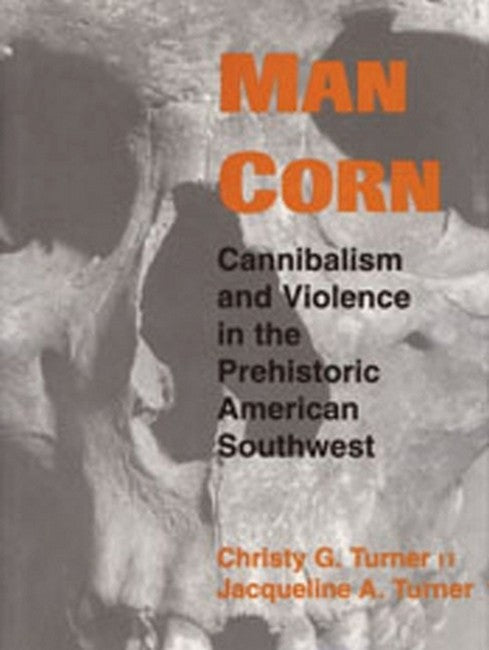Christy G. Turner II is regents' professor in the Department of Anthropology at Arizona State University. The late Jacqueline A. Turner was a ranch manager in Dragoon, Arizona.
Request Academic Copy
Please copy the ISBN for submitting review copy form
Description
Table of Contents: 1. Introduction: Studying Southwestern Cannibalism 2. Interpreting Human Bone Damage: Taphonomic, Ethnographic, and Archaeological Evidence 3. Taphonomic Evidence for Cannibalism and Violence in the American Southwest: Seventy-Six Sites 4. Comparative Evidence: Cannibalism and Human Body Processing in Mexico 5. Conclusion: Explaining Southwestern Cannibalism Appendix Acknowledgments List of Figures List of Tables References Cited Index to Sites General Index
"A fascinating theoretical glimpse into the collapse of a great civilization."--Los Angeles Times "A major contribution to understanding taphonomic signatures of human violence and cannibalism and to Southwestern prehistory. Debates over interpretation aside, the Turners' legacy of objective reporting of the evidence will endure."--Journal of Anthropological Research "A remarkable achievement, a joy to read, and a sobering learning experience. This book is one of the few that truly belong on the shelf of every Southwestern archaeologist."--Kiva "Presents solid research, with all the information required for critical independent testing by other scientists. An important book for southwestern and American archaeology. Presents significant scientific research that cannot fail to focus the factions of the 'science wars' on archaeology, and the relative values of data and discretion in archaeology's search for truth."--The Journal of Arizona History "Sure to be one of the most controversial books on Southwestern archaeology of our generation."--American Archaeology "The first detailed account of cannibalism and violence on a regional scale in the prehistoric American Southwest, especially in the Chaco Canyon area. It's a shocker."--High Country News "The Turners make their case convincingly and methodically, but not at the cost of producing an interesting and thought-provoking book. The renegade anthropologists have advanced a theory that has breathed life into a moribund debate, while producing a book absolutely worth reading even for those outside the field."--San Francisco Bay Guardian "Both provocative and encyclopedic." --Latin American Antiquity

